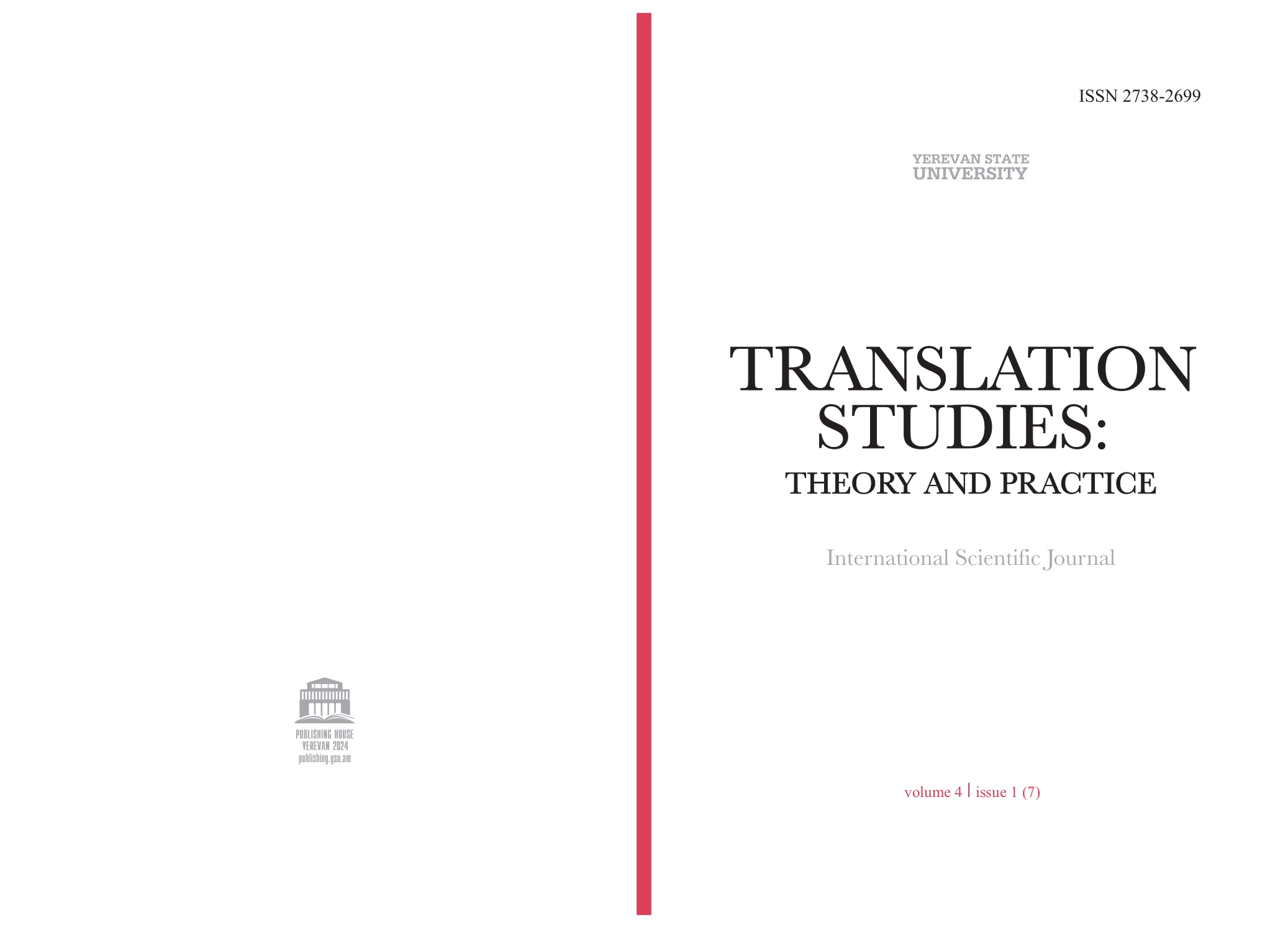Crossing Cultural Boundaries: The First Translation of Crime and Punishment in Italy
DOI:
https://doi.org/10.46991/TSTP/2024.4.1.074Keywords:
Dostoevsky, indirect translation, Crime and Punishment, literary receptionAbstract
Indirect translation, criticized for impurity, played a pivotal role in introducing Russian literature to fin-de-siècle Italy. Initial Italian translations of Russian classics stemmed from French translations, with France serving as a key hub for Russian literary reception in Europe. This article delves into the first Italian translation of "Crime and Punishment" to explore the nuances of this process. It examines the trade-offs—what was lost in translation—and highlights how the mediation through French translation paradoxically aided the reception of Dostoevsky in late 19th-century Italy.
References
Dostoevsky, Fëdor Mikhailovich. 1973. “Prestuplenie i nakazanie” [Crime and Punishment]. In Id., Polnoe sobranje sochinenii v tritzati tomakh [Complete Works in Thirty Volumes], t. 6. Moskva: Nauka.
Dostoïevski, Fiodor Mikhaïlovitch. 1884. Le Crime et le Châtiment, traduit par Victor Derély, 2 voll.. Paris: E. Plon, Nourrit et Cie.
Dostoievski, Fedor Michajlovic. 1889. Il delitto e il castigo (Raskolnikoff), 3 voll. Milano: Fratelli Treves.
Dostoevskij, Fedor Michajlovič. 2013. Delitto e castigo. Milano: Feltrinelli.
Baselica, Giulia. 2011. Alla scoperta del genio russo. Le traduzioni italiane di narrativa russa tra fine Ottocento e primo Novecento. Tradurre. Pratiche Teorie Strumenti. 0. Accessed November 16, 2023. https://rivistatradurre.it/tradurre-dal-russo-2/
Strakhov, Nikolay N. 1883. Biografiya, pis’ma i zametki iz zapisnoy knizhki F. M. Dostoevskogo [Biography, Letters, and Notes from the Notebook of F. M. Dostoevsky]. Sankt-Peterburg: Tip. A. S. Suvorina.
Belov, Sergey V. 1979. Roman F. M. Dostoevskogo «Prestuplenie i nakazanie» [The Novel of F. M. Dostoevsky "Crime and Punishment”]. Leningrad: Prosveschenie. Leningradskoe otdelenie.
De Vogüé, Eugène-Melchior. 1886. Le Roman Russe. Paris: E. Plon, Nourrit, et Cie.
Gacoin Lablanchy, Pauline, et Adèle, Bastien-Thiry. 2014. “André Markowicz et les enjeux de la retraduction.” Bulletin de l'Institut Pierre Renouvin, 40(2): 83-94. Accessed November 16, 2023. DOI: https://doi.org/10.3917/bipr.040.0083.
Landers, Clifford E. 2001. Literary Translation: A Practical Guide. Clevedon: Multilingual Matters.
Renton, Bruce. 1961. “La letteratura russa in Italia nel XIX secolo.” Rassegna sovietica. V: 70-83.
Toporov, Vladimir Nikolaevich. 1993. “Poetika Dostoevskogo i arkhaichnye skhemy mifologicheskogo myshleniya” [The Poetics of Dostoevsky and the Archaic Schemes of Mythological Thinking]. In Roman F. M. Dostoevskogo «Prestuplenie i nakazanie» v literaturnoj nauke XX veka [The Novel of F. M. Dostoevsky "Crime and Punishment" in the Literary Science of the 20th Century]. Izhevsk: Izd-vo Udmurt un-ta, 105–123.
Downloads
Published
How to Cite
Issue
Section
License
Copyright (c) 2024 Iris Uccello

This work is licensed under a Creative Commons Attribution-NonCommercial 4.0 International License.










